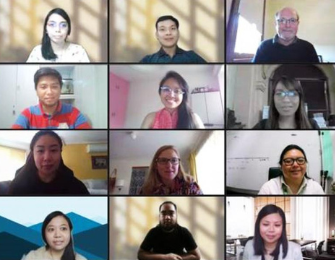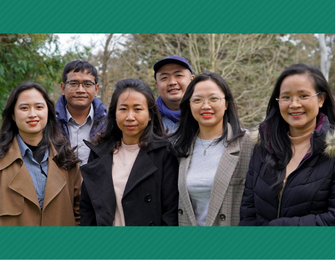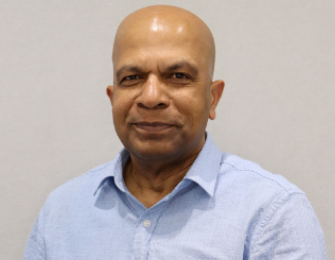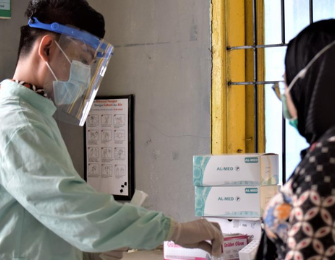
Safety monitoring and reporting activities – known as pharmacovigilance – form an important ongoing practice when it comes to administering all vaccines and medicines. But the scale and complexity of the COVID-19 vaccine roll-out means many countries have had to enhance their pharmacovigilance systems to respond to Adverse Events Following Immunisation – any untoward medical event that occurs after someone has received a vaccine.
Australia’s leading scientific institutions are providing technical expertise to our regional partners to help strengthen these systems through our regional Vaccine Access and Health Security Initiative.
One example is a recent collaboration between the Philippines Bureau of Epidemiology and Australia’s Therapeutic Goods Administration (TGA) on a bespoke webinar series.
The two-part webinar series was informed by a detailed set of questions about Australia’s pharmacovigilance system for COVID-19 vaccines from Dr Gabriel Borlongan, Medical Officer in the Philippines Bureau of Epidemiology, who wanted to understand how it compares to the Philippines’ system.
The webinar content was developed and delivered by two of the Pharmacovigilance Technical Leads at TGA, Dr Iga Policinska and Dr Therese Marfori. Twenty representatives from the Philippines Bureau of Epidemiology and Bureau of International Health Cooperation in the Philippines Department of Health, along with eight TGA staff, participated virtually.
The first webinar, delivered by Dr Policinska, focused on defining an Adverse Event Following Immunisation (AEFI) and discussed how AEFIs are reported by immunisation providers (such as nurses, GPs and pharmacists) to the TGA, the World Health Organisation and the general public. The second webinar, delivered by Dr Marfori, covered signal detection methods used in Australia and examined how the TGA analyses safety reports and investigates cases to establish whether the AEFI was likely caused by the vaccine or not.
The importance of transparent AEFI reporting to the public, while at the same time respecting the confidentiality of patient information, emerged as a key priority and topic for discussion. Dr Policinska commented, “The rapid roll-out of COVID-19 vaccines has put vaccine and medicines safety at the forefront of the public’s mind, and regulators have an important responsibility to demonstrate that any safety concerns are being addressed promptly and efficiently”.
Dr Borlongan said after the webinar, “We are very thankful for helping us understand how pharmacovigilance works in Australia, given the Australian system’s decades of collective experience. We were really glad that we got inputs on how to further shape vaccine vigilance or AEFI surveillance in the Philippines”.
Following the success of this initial webinar series, planning is underway for ongoing collaborations between Australia and the Philippines. Dr Policinska said, “The team at the TGA are excited about the partnerships we’re building with the Department of Health in the Philippines and look forward to future opportunities to work together.”
The engagement with the Philippines Bureau of Epidemiology represents a significant expansion of the TGA’s support to the Indo Pacific.
Prior to the COVID-19 pandemic, the TGA was already assisting seven countries in Southeast Asia and the Pacific on medicines and diagnostics under the Indo-Pacific Regulatory Strengthening Program (RSP) funded under the Centre's initial Health Security Initiative.
Under the Vaccine Access and Health Security Initiative, a further 11 countries are now eligible to receive technical advice on COVID-19 vaccine regulation and safety monitoring from TGA experts.




